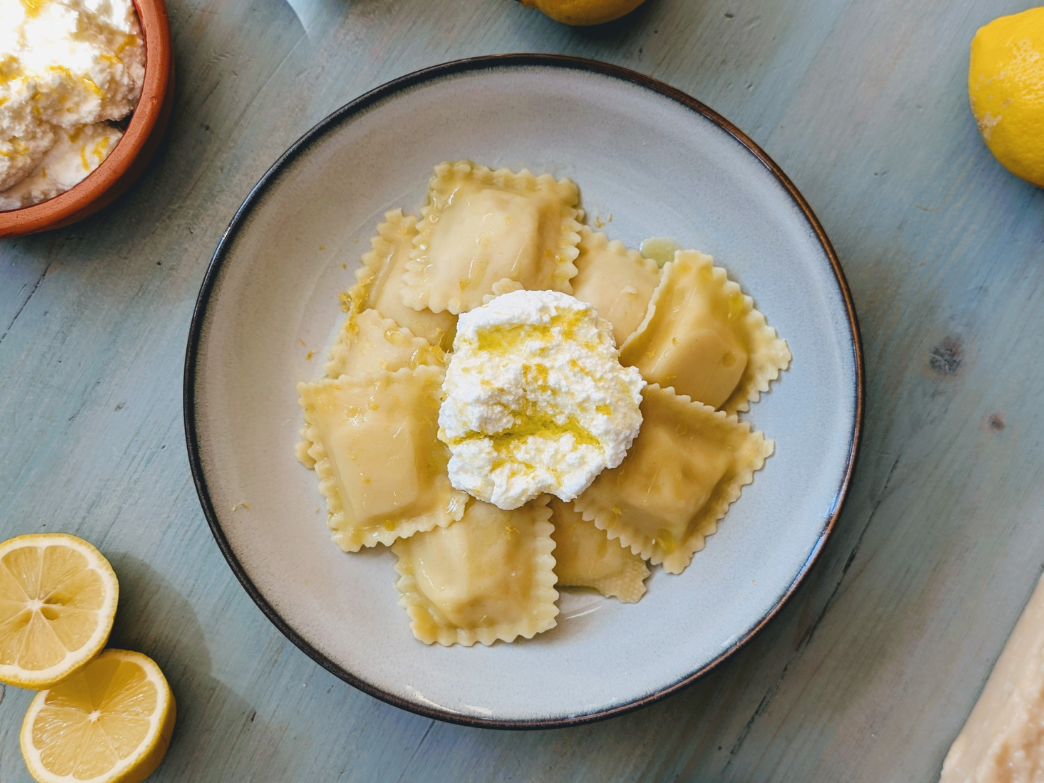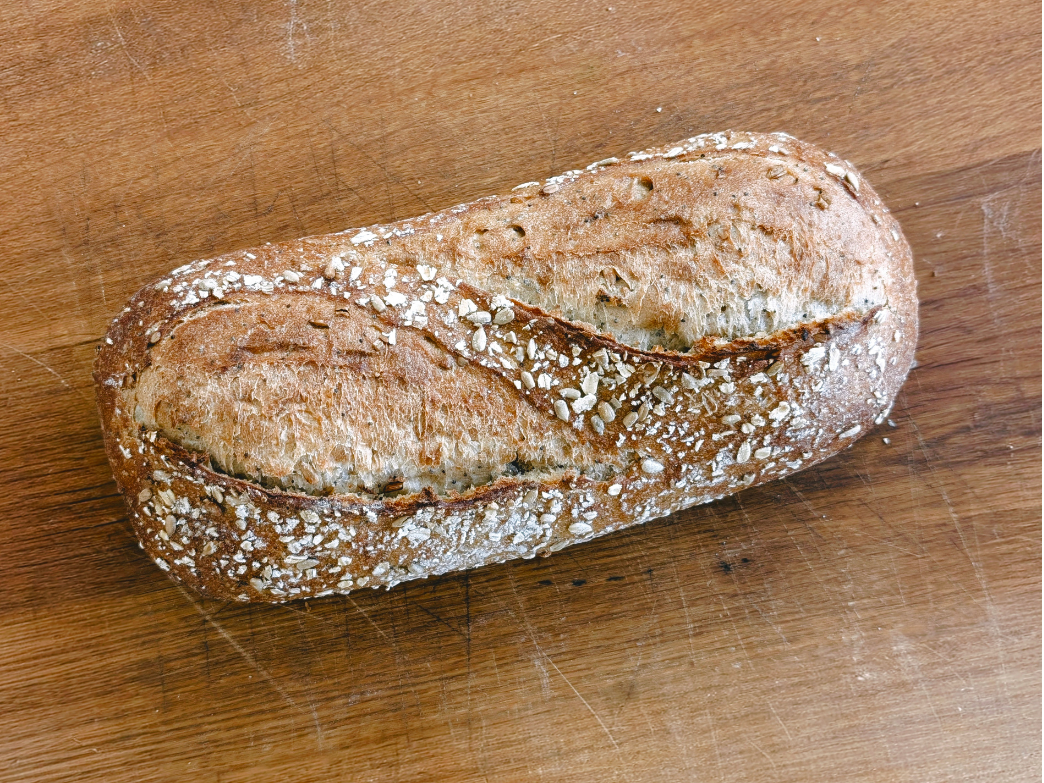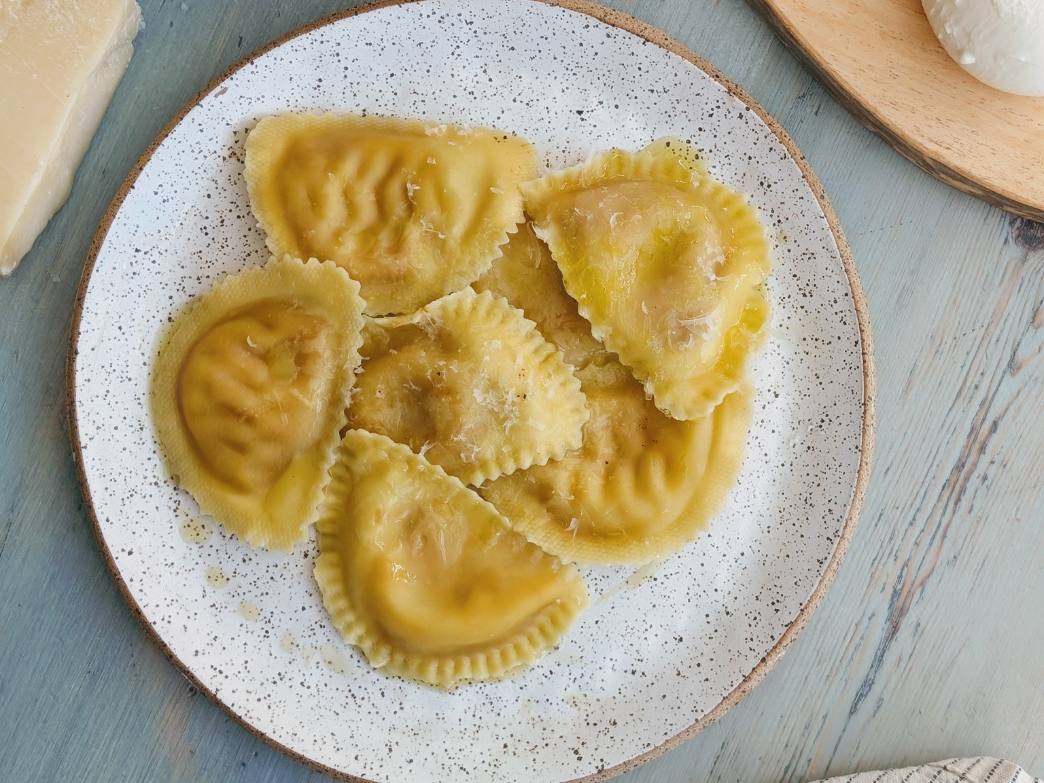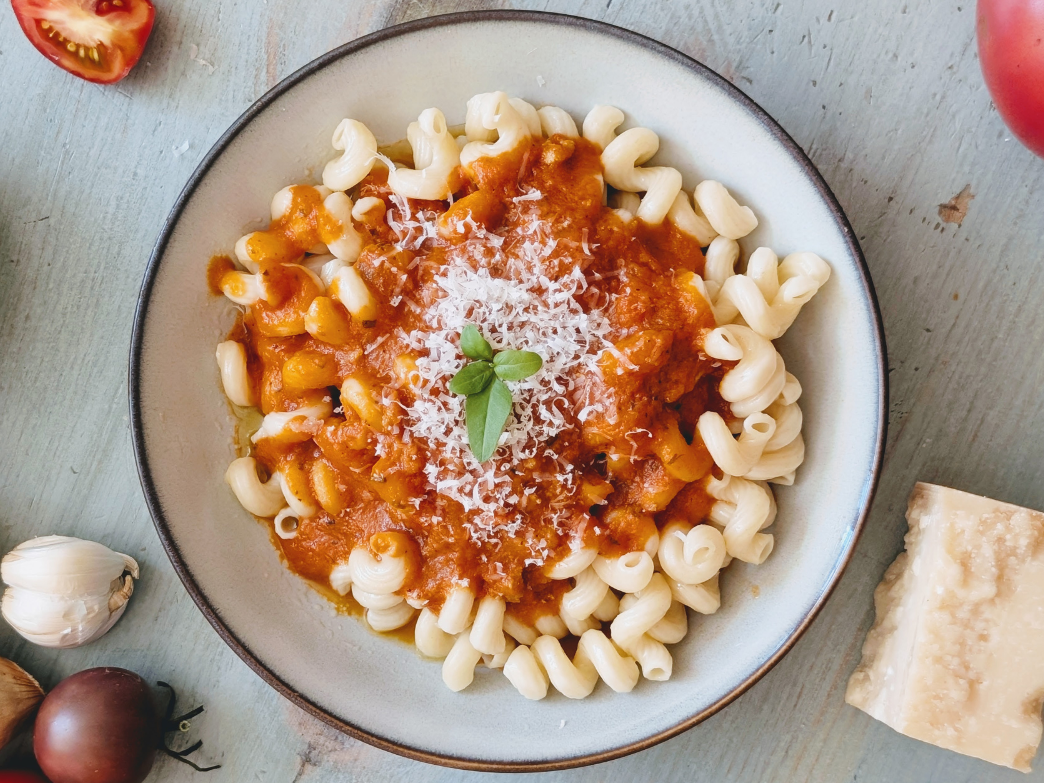By Lucy Yanckello, Ph.D.
Knowing the best way to store pasta can be confusing. The best storage method is based on the state of the pasta, whether it is fresh, dried, or cooked. Read on to learn tips and tricks to keep your pasta fresh, no matter its state!
Where is the best way to store pasta? Where should pasta not be stored?
The best way to store pasta depends on if the pasta is cooked, uncooked, fresh, or dried. Ideal storage conditions for dried uncooked pasta is a cool, dry place, such as a pantry or cupboard in an airtight container to prevent moisture.
If you plan to use fresh pasta within two to three days, you can store it in the refrigerator in an airtight container. For long term storage, fresh pasta should be frozen in a freezer safe bag or container. Alternatively, fresh pasta can be dried and stored in an airtight container in a cool, dry place.
If you have leftovers of already cooked pasta, store it in an airtight container for three to five days. If you don’t plan on eating it in a short period of time, cooked pasta can be frozen in an airtight container, but be sure to toss it with olive oil before storing to prevent it from clumping.
In all cases, pasta should not be stored above heat sources such as stoves or ovens, or in humid environments, as both heat and humidity can degrade quality and attract pests. Additionally, both cooked and fresh pasta should not be stored at room temperature as this can spoil it by allowing harmful bacteria to grow.
Is it better to store pasta in glass or plastic?
Although plastic containers may be more affordable, glass containers offer more safety and durability benefits for storing pasta.
Glass is non-porous and as such it does not leach chemicals into your food, unlike plastics which can release substances when exposed to heat. Additionally, glass containers do not absorb food odors or stains, keeping pasta fresher for longer.
In the same vein, glass is less prone to scratching and warping, making it a better option for protecting the pasta inside. Another pro for glass is that the non-porous nature of the material makes it easier to clean.
Can you store uncooked pasta in the fridge?
Yes, uncooked fresh pasta can be stored in the fridge. The uncooked pasta should be placed in an airtight container and can be refrigerated for two to three days. Storing for any longer than three days, the pasta should be frozen.
How to store pasta so you don’t get bugs? How can you tell if pasta has gone bad?
Pasta should be stored in airtight containers no matter if in the pantry, refrigerator, or freezer. This will keep bugs at bay. Be sure to keep containers away from sources of heat and humidity.
To tell if dry pasta has gone bad, look for discoloration (i.e. gray color or yellowing) which may be indicative of age, or that the pasta has been exposed to moisture. Additionally, the texture may be brittle or chalky which indicates the pasta is stale, and it may also give off a musty odor if it is spoiled.
For cooked pasta, spoiled pasta will be sour or have a rancid odor with a slimy or mushy texture. It may be gray or greenish in hue, and have a bitter or off taste. In this case, the pasta should no longer be consumed.
Is it ok to refrigerate pasta? Is it ok to eat cold pasta from the fridge?
Fresh and cooked pasta can be refrigerated for a short period of time. Cooked pasta can be stored in the refrigerator for three to five days in an airtight container. Fresh pasta can be stored in the refrigerator for one to two days in an airtight container. Any longer and the pasta should be dried or frozen.
It is okay to eat cold pasta from the fridge as long as it does not look or smell as if it is spoiled. Even within the three to five day window, be sure to smell and examine the pasta before eating it.
What is the best way to store pasta for the long term? How long can dry pasta be stored?
The best way to store pasta for the long-term is drying it or putting it in the freezer. Cooked pasta can be frozen in an airtight container or bag for up to two months, but be sure to toss it in olive oil before storing to prevent clumping.
Fresh pasta can also be laid flat on a baking sheet to freeze it individually to avoid sticking. After the noodles are frozen individually, they can be transferred to a freezer-safe bag or container and can last one to two months in the freezer. Alternatively, fresh pasta can be dried by laying it on a baking sheet for 12-24 hours. Afterwards, the pasta can be stored in an airtight container in a cool, dry place and lasts for about two years.
Dry pasta bought from the store can last up to two years when stored properly.
What is the best way to store leftover pasta?
If you plan on eating leftover pasta within a short period of time, it can be stored in an airtight container in the fridge. However, if you do not plan on consuming it within three to five days, the leftover pasta should be stored in the freezer. Be sure to toss the pasta in a small amount of olive oil before freezing to prevent clumping. The pasta should be stored in an airtight freezer safe bag or container.
Is it okay to freeze cooked pasta? How do you store pasta in the freezer?
It is okay to freeze cooked pasta. If you do not plan on consuming leftover cooked pasta within three to five days, the freezer is a great option for storage for up to two months. In order to prevent the pasta from clumping up, toss the cooked noodles in a small amount of olive oil prior to freezing in an airtight freezer safe bag or container.
About the Author
Lucy Yanckello received her Ph.D. in nutrition from the University of Kentucky College of Medicine. She currently works as a medical writer and enjoys being able to help people better understand nutrition and science.
This content is for informational use only and does not replace professional nutrition and/or medical advice, diagnosis or treatment. It is not a substitute for and should not be relied upon for specific nutrition and/or medical recommendations. Please talk with your doctor about any questions or concerns.



